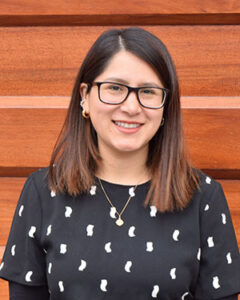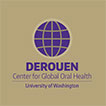
Greetings from Peru. My name is María Claudia Garcés-Elías, a graduate in dentistry from the San Luis Gonzaga de Ica National University. Additionally, I completed an MBA in health at the Andrés Bello University in Chile and decided to specialize in Dental Public Health at the Cayetano Heredia Peruvian University (UPCH). I first heard about this specialization months before joining the rural service that health professionals carry out in my country (SERUMS). Until that moment, I found it difficult to fully understand what public health involved.
Although the SERUMS rural service in Peru is not mandatory for dentists, it is established as a prerequisite for pursuing dental residency. That’s why, in 2018, I embarked on this experience by traveling for a year to Querobamba, one of the 11 districts that make up the province of Sucre, part of the Ayacucho region (located in the central-southern part of Peru). This district is 3500 meters above sea level, 14 hours away from my residence, and accessible only by road, which can collapse during the rainy months. However, adapting seemed straightforward; I could get used to its cold climate, the health center, its workers, and the community organization. I recall that initially, my patients were children who shyly peeked into the office. Over time, they convinced their siblings, parents, and grandparents to seek care. After six months, I believed that I understood how this community operated. The inhabitants of that locality started their day very early and finished it around 7:30 pm; after that hour, the streets were absolutely empty. While on Sundays, they entertained themselves by fishing for trout, picking fruits, or attending bullfights.

Despite being a rural community, I assumed that their essential needs were assured, thanks to institutions located at most two hours away. However, on one occasion, a father and his eight-year-old son arrived at the health center for a dental examination. When the child approached to be treated, I noticed that all of his clothing was dirty, which concerned me and led me to inquire about the reason, even considering possible neglect by his parents. That’s when they began to tell me that they lived in a district four hours away, and to find transportation they waited on the road for someone to take them to the city. On that particular day, they waited since 7:00 am, although the time to find a vehicle was always uncertain. During the four-hour journey on a highly rough road, the child experienced dizziness that caused nausea, resulting in him soiling his clothes. Upon reaching their destination, they did not know where the child could rest and recover. So, the only alternative was to go to the health center, receive attention, and return home as early as possible.
After hearing the story, I realized that my perspective on life in Querobamba was significantly biased compared to that of its inhabitants in the city and the surrounding districts. Overall, the living conditions they were exposed to hindered their access to health services and surpassed any intention of receiving timely medical attention despite being a well-informed and health-conscious community.
After completing my rural service, my motivation to specialize in public health strengthened and led me to research dental health disparities among children and older adults in Peru, my main research focus. Five years after concluding this experience, I understand more and more the scope of action of public health specialists and the needs of rural communities in Peru, including the population of Querobamba. As a final reflection, having experienced rural service or similar activities is essential if you aspire to work in public health. Only through such experiences can one gain a profound and empathetic understanding of the field, enriching the ability to contribute significantly to improving populations’ health and quality of life.
